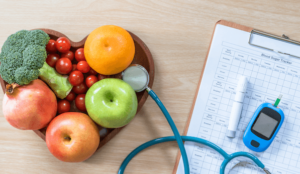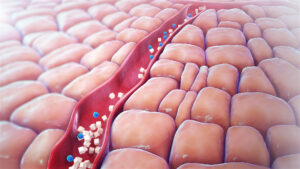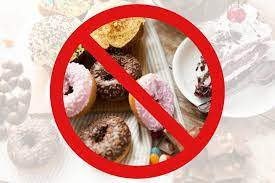Contents
- 1 What is Polyphagia?
- 2 3 P’s of Diabetes: Polydipsia, Polyuria, Polyphagia
- 3 Symptoms of Polyphagia (Increased Appetite)
- 4 Causes of Polyphagia
- 5 Excessive Hunger and Hyperglycemia
- 6 Excessive Hunger and Hypoglycemia
- 7 Excessive Hunger and Hyperthyroid
- 8 Diagnosis of Polyphagia
- 9 Treatment of Polyphagia
- 10 Tips to Deal with Food Cravings
- 11 Conclusion
What is Polyphagia?
Hunger is a common word and experience that people overlook normally. But hunger can be of many types. People usually pay no attention to it. One is a normal wish to have food when your stomach is empathetic after every 2-4 hours. Polyphagia is nothing but a medical term used by experts to describe increased hunger or excessive appetite.
This is one of the main signs and symptoms of diabetes. Usually, increased appetite is a response to an intense workout or some other strenuous activity. Depression and increase in stress levels also cause polyphagia.
3 P’s of Diabetes: Polydipsia, Polyuria, Polyphagia

The three p’s of diabetes are:
- Polydipsia
- Polyuria
- Polyphagia
Polyphagia, also known as “hyperphagia” is one of the three p’s of diabetes. Whereas polydipsia refers to increased thirst and polyuria refers to frequent or excessive urination.
These three are the main symptoms of diabetes.
However, the other causes of polydipsia are:
- Dehydration
- Osmotic diuresis (increased urination due to excess glucose entering the kidney tubules)
- Mental health disorders (psychogenic polydipsia)
And the other causes of polyuria can be:
- Pregnancy
- High calcium levels (hypercalcemia)
- Mental health issues
- Intake of medicines such as diuretics
- Kidney disease
- Diabetes insipidus
Symptoms of Polyphagia (Increased Appetite)
Well, the main sign of polyphagia is abnormal eating. The hunger doesn’t go away simply by eating normally. If you are not into an intensive workout or exercise regimen and still feel like eating all the time, make sure to consult your doctor.
Causes of Polyphagia
Increased hunger or polyphagia can be the result of:
Diabetes

Polyphagia may be a symptom of diabetes. Whatever you eat, your body turns it into glucose. It then uses a hormone called insulin so that the glucose produced can be transferred from your bloodstream to your cells. The cells then use this glucose for energy to carry forward normal body functions.
In diabetes, the body either is not able to produce insulin (type 1) or is not able to use the produced insulin properly (type 2). Therefore, the glucose converted from the food you eat remains in your bloodstream for longer and is urinated out. This means that cells don’t get any energy to function properly. When this happens, you get a signal from your cells to continue to eat so they can get the glucose they need. And you feel the urge to eat again and again.
Other symptoms of diabetes include :
- frequent urination
- excessive thirst
- unexplained weight loss
- blurred vision
- slow wound healing
People with diabetes are also at a higher risk of developing hyperglycemia, due to medication to control high blood sugar. Hyperglycemia can also lead to polyphagia for people with diabetes.
Hypoglycemia (low blood sugar levels)

Another name for high blood sugar levels is one of the main causes of Polyphagia. While it mostly occurs in people with diabetes, it can happen to anyone of us. Some other symptoms of hypoglycemia include:
- dizziness
- headaches
- inability to concentrate
- shaking
- sweating
- personality changes
Stress

When you’re stressed, your body releases a large amount of a hormone called cortisol. This hormone triggers your appetite.
Extreme hunger when you’re stressed or anxious might also be an emotional response. You might be seeing food as a remedy to cope up with the negative emotions, either consciously or subconsciously. Stress can also have other physical symptoms, such as:
- lack of energy
- unexplained aches and pains
- Insomnia
- frequent colds
- upset stomach
Premenstrual Syndrome (PMS)

The changes in hormones a woman goes through in her monthly cycle can make you extremely hungry. Especially, right before you get your period. Spikes in hormones such as estrogen and progesterone and decreased serotonin lead to intense cravings for carbs and fats. Other symptoms of PMS include:
- irritability and mood swings
- bloating
- gassiness
- fatigue
- Diarrhea
Lack of Sleep

A human’s different kinds of hormones for different functions. The hormones that regulate hunger get triggered when you are not getting enough sleep. Therefore, lack of enough sleep makes it harder for your body to control the levels of hormones that regulate hunger. Also, it happens that when you are abnormally hungry, you tend to eat food with more calories than you usually might.
Not only the sleeping hours, but the quality of sleep matters too. Sleep apnea and other sleep disorders can also cause you to eat more.
If you’re sleep-deprived, you might also notice:
- daytime sleepiness
- mood changes
- memory problems
- difficulty concentrating
Some other causes of Polyphagia:
- Depression
- Binge Eating Disorder
- Bulimia
- Some Psychiatric Conditions
- Some medications and drugs
- Rare Medical conditions (Kleine-Levin Syndrome and Prader-Willi Syndrome)
Excessive Hunger and Hyperglycemia
In unregulated diabetes where your blood glucose levels are abnormally high (a condition called hyperglycemia), glucose from your blood does not enter the cells. This happens either due to lack of insulin or insulin resistance and your body is unable to convert the food you eat into energy.
This lack of energy causes hunger at smaller intervals of time.
Simple or normal eating habits will not get rid of the hungry feeling of polyphagia. Especially in people with uncontrolled diabetes. Because this will just add to the numbers of already high blood glucose levels. The best way to help you in lowering blood glucose levels is to exercise as this can help to stimulate insulin production and increase insulin sensitivity, and ultimately reduce blood sugar levels.
However, if the hunger persists for a longer time, you will need to consult your doctor or diabetes health care team.
Excessive Hunger and Hypoglycemia
Low blood sugar (hypoglycemia) also causes Increased appetite.
If your blood sugar readings fall below 4 mmol/l, the body usually reacts by releasing stored glucose present in the liver. This is done to raise glucose levels back to normal.
It is seen that people suffering from diabetes who are dependent on medication such as insulin and sulfonylureas are at risk of getting affected by hypoglycemia. Therefore, they should treat low blood glucose levels by eating something sweet as soon as hypoglycemia is recognized, or felt.
Excessive Hunger and Hyperthyroid
Hyperthyroid (overactive thyroid), also referred to as “Grave’s Disease”, is when your thyroid gland begins producing far more thyroid hormones than normal.
Hyperthyroidism is very common in people suffering from diabetes. Therefore, it becomes crucial for you to go for your thyroid or if you come across any of the symptoms.
The thyroid has its location on the front part of the neck. And when you go for your diabetes check-up, your doctor might check for your throat. When a person experiences hypo or hyperthyroid, the gland is often noticeably swollen.
The hormones produced by the thyroid glands are responsible for the functioning of the body. The way your body will use energy for every other part depends on the balanced production of the hormones.
Hyperthyroidism can be the cause of problems in your:
- Heart,
- Bones,
- Muscles,
- Menstruation,
- Fertility,
- Safety for both mother and baby during pregnancy,
- Bodyweight, and
- Appetite.
Overproduction of thyroid hormones makes you hungry.
Diagnosis of Polyphagia
First of all, your doctor is going to take a detailed medical history, including:
- What are the other symptoms you have been noticing?
- For how long your polyphagia has been till now?
- What and how much is your diet?
- Do you have any family medical history?
Based on the information mentioned above, the doctor will be able to figure out the exact cause of your polyphagia. If not, they will then perform blood tests to figure out any suspected causes. For example:
- blood glucose test (to diagnose diabetes),
- thyroid function test (to determine hyperthyroidism).
Treatment of Polyphagia
Well, treatment for excessive and abnormal hunger will depend upon the cause of it. For example:
- If your hunger is due to some underlying physiological condition such as diabetes, the doctor will figure out that with a blood test. For treating your polyphagia, he will recommend some medicines.
- In case, there is no result found in a physiological test, your doctor will send you to a mental health specialist. These specialists try to work on the mind-related causes of polyphagia.
Tips to Deal with Food Cravings
Avoid Taking Much Sugar

One of the first and major steps would be to say no to sugar. It is also a major step taken to treat people with diabetes. Studies have shown that control on blood sugar levels has decreased cravings, whereas, higher A1C increases food cravings leading to polyphagia.
Be aware of fake hunger

Often, it’s difficult to differentiate between real hunger and cravings. Well, time acts as a clue. Hunger is something that occurs over a longer time, but cravings come suddenly. The other difference is that you just cannot ignore your hunger, but if you wish to, you forget about eating if it’s no more than cravings. It can be done by distracting yourself. So, there is a need to recognize real hunger.
Sleep well

People who rest well tend to eat less or eat normally. An unhealthy sleeping routine affects your brain functions because of which you start craving high-calorie foods too. To improve your sleeping habits, make your room comfortable and cozy.
Create a balanced diet

Eating in a healthy way will keep your excessive hunger at bay. Make sure to have protein, carbohydrates, fat, and fiber in each meal and snack. This makes you feel full for longer hours. So, create a balanced diet that you can have all through the day and make sure that you always have something light in your dinner. This is important because the food or the calories you take before sleeping are not completely exhausted as a form of energy. and the unused calories and carbs get settled as more and more fats.
Choose healthy alternative
Try to know your taste and flavors first. And then aim to suffice them with healthier options. For example, if you like paste, have a wheat paste instead of white pasta. Go for a blended-up frozen banana, if you crave ice creams.
Conclusion
Here we have reached the end. All you need to know is that it is your body and it will be you taking care of it lifelong. You need to be very sure about the impact that certain edible things are going to put on your body. The wisest option is to make a balanced diet chart for yourself and make a note of everything that helps you in a positive manner. More importantly, you should be aware of the methods by which you can monitor your sugar level timely. Hope you ended up having a productive time reading the above article about blood sugar levels.
If you are facing diabetes-related issues, MantraCare is here to help. Book your free trial online diabetes consultation session now to connect with a specialist diabetologist.


